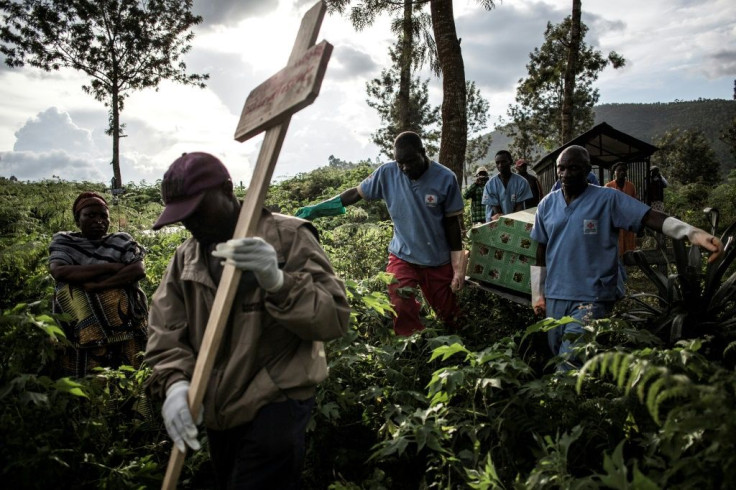Journalist, 35, Who Fought Against Ebola Outbreak Stabbed To Death At Home

A journalist who helped spread awareness in the fight against the Ebola outbreak in the Democratic Republic of Congo was killed on Monday night according to officials.
Pappy Mumbere Mahamba, 35, was stabbed to death in his home in northeast Congo and his wife was severely wounded after they both were attacked and their house was burned down, a joint press release by the Congolese health officials and United Nations said.
The motive behind the attack which took place in the town of Lwenba in the Iuri region is not yet known, but it took place at the time when authorities were set to release a new vaccine against the Ebola outbreak in areas that were not yet affected.
Mahamba was a radio host in Lwemba and was involved in shedding light and spreading awareness regarding the 10th outbreak of Ebola in his country.
An investigation has been launched by the authorities and two suspects have been caught according to the press release.
Tragic news. Journalists working to raise awareness about #Ebola and the power of #vaccines shouldn’t have to live in fear for their lives. I am deeply saddened to read about the senseless murder of Papy Mahamba Mumbere. https://t.co/T0fEdbXkGg
— Seth Berkley (@GaviSeth) November 4, 2019
The Ebola epidemic was first declared in Aug. 2018 and the haemorrhagic fever has managed to take the lives of more than 2000 people since. Ituri is one of the areas which has been affected most by the outbreak of Ebola in DR Congo.
The fight against the epidemic has been hard due to the conflict in the area and also because of people rejecting preventive measures and healthcare facilities.
Health workers have come under attack in the past too, with the World Health Organisation (WHO) documenting 300 attacks that took place on health workers and health facilities since Jan.1 this year.
A Cameroonian doctor from the WHO was shot dead during an attack on a hospital in April. In September, 20 houses that belonged to health workers fighting against the Ebola epidemic were set to fire by militiamen.
"Any act of violence against individuals involved with the response is unacceptable and compromises the ability of health workers to provide assistance to communities impacted by the devastating effects of Ebola," the release said.
The cause of violence against the health workers has been attributed to the misinformation about the disease and the deep mistrust that the local communities in the active war zones have for the health workers.
© Copyright IBTimes 2024. All rights reserved.





















